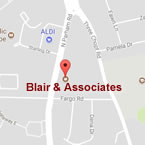Depends: Employee or Self-Employed
September 2020

The months-long health and economic challenges of the pandemic has resulted in many Americans to work from home. A frequent question asked by those working remotely is, “What tax-breaks do I get for the added expenses of such things as utilities and use of on-the-job floor space?” The following answer will be a disappointment if you work for someone as an employee … and offers a sigh of relief if you are self-employed or an independent contractor.
Employees
The C-19 pandemic triggered an unexpected consequence for both employers and workers … regulator mandated cessation of working in offices, factories and other facilities where close physical contact is a factor. That resulted in nearly 36 million workers, about 25 percent of the American workforce, to start working remotely. You may be one of them.
If you receive a W-2 form for your work, you are an employee. In contrast to self-employed individuals, your employer foots the bill for 50% of federal payroll taxes. The balance is withheld from your paycheck and remitted to the IRS.
Tax law revisions in 2018 prevents employees from deducting job-related expenses that are not reimbursed by their employer. And that is the case even when mandated by your employer to do so under current efforts to fight the spread of coronavirus. Additionally, if you are leaning toward seeking greener employment pastures, you can no longer deduct expenses related to finding a new job.
In one survey, it was found that 82% of workers want to work from home at least once a week … 57% at least three days a week. Many people working remotely, enjoy enhanced work-life balance by spending more time being productive at home rather than hours commuting or suddenly called away for parental or caretaker emergencies.
Eliminating the daily commute saves both time and money, plus adds to employees’ quality of life. Alternatives to the need for public transportation, as well as vehicle fuel, tolls, payments and maintenance costs may result in significant savings.
Self-Employed/Independent Contractors
If you are self-employed or an independent contractor, you may deduct certain business-related costs, so long as you keep detailed records and itemize each of these expenses on your return. The following is a summary of 10 deductions that you may qualify to claim.
For the detailed specifics …
Blair + Assoc is as close as a phone call or email to confirm your allowable deductions.
1. Home Office
Generally, deductions for a home office are based on the percentage of space in your home exclusively devoted to business use. So, if you use a whole room or part of a room for conducting your business, you need to figure out the percentage of your home exclusively devoted to your business activities. You may then deduct this percentage for each of the following:
• Rent or interest on your home mortgage
• Utilities
• Homeowners insurance
• Property taxes
2. Office Supplies
Essential items to your business such as printer paper and ink cartridges, desk and filing cabinet likely will qualify as deductible.
3. Equipment
Computer, printers and equipment uniquely essential for your business plus repairs are deductible. Likewise, the cost of a smartphone you use solely for business and related expenses qualify as write-offs.
4. Software
When used strictly for your business, any software you purchase or pay for monthly qualifies.
5. Travel Costs
Travel expenses you incur to visit a client or attend a conference are deductible. That may include mileage, airfare, lodging, parking and other travel-related costs paid by you.
6. Meals and Entertainment
Make sure that your costs are all directly related to business. Fifty percent of qualified expenses may then be deductible.
7. Training and Education
Professional education expenses necessary to run or grow your business will qualify.
8. Marketing and Advertising
Expenses to attend trade-shows, printed promotional items, website expenses, business cards and other marketing and advertising costs are deductible.
9. Professional Services
You will likely incur expenses for outside help or advice. Your CPA, attorney, IT contractor and others will all qualify as fee-for-service deductions
10. Health Insurance
If you meet the following criteria, you may deduct 100% of your health insurance premiums for yourself, your spouse and dependents:
• Your business is claiming a profit for the tax year.
• You (and your spouse and dependents) were not eligible for coverage from an employer or under your spouse’s plan during the months you’re claiming.
Again, the above 10 items are meant only as a summary of deductions you may claim as a self-employed individual or independent contractor. There may be others that qualify, so it’s wise to keep track of expenses such as bank charges, shipping costs, post office box fees and reasonable costs for holiday gifts for your best clients.
Have Immediate Questions or Concerns!
Blair + Assoc stand ready to help as needed. A phone call or email is all it takes.
We’ll respond promptly.

